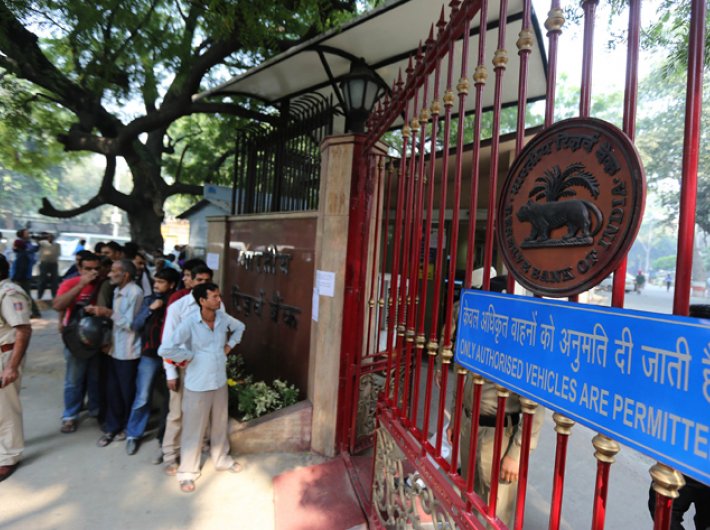Emerging loopholes show government ill-prepared to follow up on momentous decision
As soon as the government announced its decision to demonetise Rs 500 and Rs 1,000 notes on the night of November 8, there has been an emergency-like situation across the country. With serpentine queues outside various banks, weddings getting cancelled, and even in some rare cases people dying – the woes of the common man are increasing with each passing day. Dismissing this discomfort as “collateral damage”, many are praising Modi’s “surgical strike” against black money.
No doubt the intention of the government is good, but the patience of those who have to wait for hours outside banks -- day after day -- is running thin. If the “surgical strike” was indeed a planned one, it was certainly not a well-planned one.
#Mistake 1
There are over 2 lakh ATMs across the country. For the demonetisation drive these machines have to be recalibrated in order to dispense new Rs 2,000 and Rs 500 notes. Finance minister Arun Jaitley had announced that it might take two-three weeks for recalibration of the ATMs. But according to a report in
The Indian Express only 15,000 ATMs out of over 2 lakh have been recalibrated so far. Also most of these recalibrated ATMs are in large cities, leave alone small towns and rural pockets.
Had some planning gone behind the drive, ATMs would have been recalibrated much earlier and spared the misery to the common man. The finance minister, however, maintains that on account of secrecy, the massive task of recalibrating all the ATMs was not started before the announcement. But the slow and tardy process now is adding to the people's woes.
Moreover, it was only on Monday when it was announced that a task force would be set up under RBI deputy governor SS Mundra to oversee the recalibration of ATM machines. Was the government waiting for the chaos and misery to unfold before forming a committee?
#Mistake 2
On Tuesday, the government announced another major decision, which many predict would soon turn out to be a major blunder. It decided to use indelible ink, which is used during elections, to prevent people from exchanging old Rs 500 and Rs 1,000 notes multiple times. This decision was taken amidst reports that unscrupulous people are sending people to exchange currency – converting their black into white – multiple times, according to economic affairs secretary Shaktikanta Das. However, not all people doing multiple exchanges were unscrupulous because there indeed was no clarity on this count for the first five days. Indeed, even the FM himself was clueless till Saturday. Addressing his second media briefing on this issue on Saturday, Jaitley dodged the question whether a person can exchange Rs 4,000 worth old notes multiple times. He said, “Main itna kahunga aisa koi nirnay nahin hai. Lekin behtar hai ki jin logon ke paas cash hai, woh deposit karke usko withdraw karein. (I will only say that we haven't taken any decision on this. But it would be better if people with cash first deposited the sum in their accounts and then withdrew it.),” according to a report in
The Telegraph.
The indelible ink usually stays for a month. With by-elections due in states like Assam and West Bengal, the innovative use of indelible ink might lose its sheen. But the government seems to have thought about it all and has come up with a solution – right hand will be inked for old currency exchange and left for elections. Doubt, if the overworked bank employees will be impressed with this solution as they now have an extra task cut out for them.
Also, once a person is inked he/she cannot withdraw more than Rs 4,000 (now Rs 4,500) till the ink disappears.
This also means those who scrupulously or otherwise exchanged their notes more than ones have an unfair advantage over those who patiently waited for the second week to queue up.
#Mistake 3
It has been only a week since the “surgical strike” against the black money was announced. And it has proved fatal not only to the black money but also to the lives of people. As many as 30 deaths have been reported across India due to demonetisation. There have been reports that a baby died in Mumbai, allegedly because the family did not have hard cash to make the hospital deposit.
Only after the number of deaths rose the government swung into action and announced to deploy a mobile ATM vans outside hospitals for emergency. But this decision came too little, too late.
